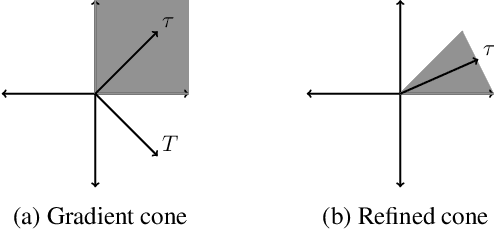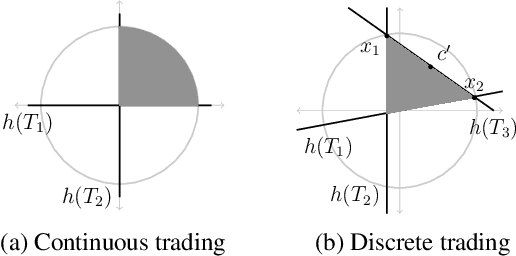Autonomous Negotiation Using Comparison-Based Gradient Estimation
Paper and Code
Aug 20, 2024



Negotiation is useful for resolving conflicts in multi-agent systems. We explore autonomous negotiation in a setting where two self-interested rational agents sequentially trade items from a finite set of categories. Each agent has a utility function that depends on the amount of items it possesses in each category. The offering agent makes trade offers to improve its utility without knowing the responding agent's utility function, and the responding agent accepts offers that improve its utility. We present a comparison-based algorithm for the offering agent that generates offers through previous acceptance or rejection responses without extensive information sharing. The algorithm estimates the responding agent's gradient by leveraging the rationality assumption and rejected offers to prune the space of potential gradients. After the algorithm makes a finite number of consecutively rejected offers, the responding agent is at a near-optimal state, or the agents' preferences are closely aligned. Additionally, we facilitate negotiations with humans by representing natural language feedback as comparisons that can be integrated into the proposed algorithm. We compare the proposed algorithm against random search baselines in integer and fractional trading scenarios and show that it improves the societal benefit with fewer offers.
 Add to Chrome
Add to Chrome Add to Firefox
Add to Firefox Add to Edge
Add to Edge